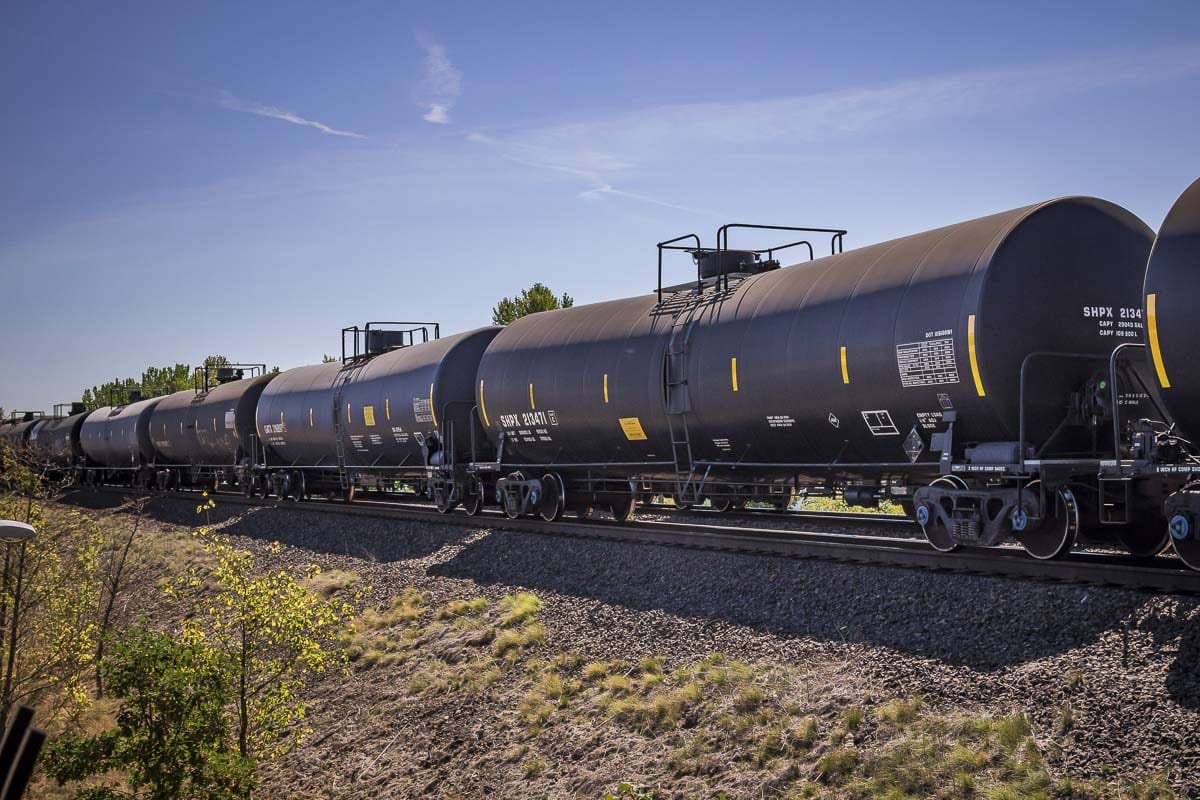The temporary moratorium requires a public hearing in no more than 60 days in order to remain in effect
VANCOUVER — The construction of any new large-scale fossil fuel infrastructure businesses in the city of Vancouver has been halted, at least temporarily.
At Monday’s Vancouver City Council meeting, Councilor Laurie Lebowsky introduced a surprise six-month freeze on new bulk fossil fuel facilities, or expansions of any existing infrastructure.
Lebowsky said the temporary freeze would give city staff time to develop a resilience plan without someone “coming in and applying” for a new facility or the expansion of an existing one.
“I want to do what we can to support a resiliency plan to promote safety and livability of our city,” said Lebowsky, “and focusing economic development on safe and renewable energy sources and green businesses.

“There is also the social equity component in that fossil fuel processing or storage facilities are often located in close proximity to low income communities or communities of color,” Lebowsky added in a nod to the racial unrest embroiling much of the country in the wake of the in-custody death of George Floyd at the hands of Minneapolis police.
Under the ordinance, fossil fuels are defined as petroleum or petroleum-based products, as well as natural gases such as propane, methan, and butane. It would exempt byproducts such as fertilizer, paint, asphalt, plastics, and denatured ethanol.
A “large-scale” fossil fuel facility is defined as those engaged in the wholesale distribution, extraction, refinement or processing of fossil fuels, the bulk movement of fossil fuels, coal storage, coal power plants, natural gas processing facilities, storage and handling of natural gas, or bulk storage of more than two million gallons of any combination of fossil fuels.
Direct-to-consumer fossil fuel businesses, such as gas stations and propane refueling are exempt from the moratorium.
“Our community, as we well know, several years ago stood up pretty strongly against crude oil in our city,” said Councilor Ty Stober, referring to public outcry in 2018 that ultimately halted construction of a rail-to-marine terminal for crude oil at the Port of Vancouver. “We’ve been hearing consistently from citizens over the past several years that they’re ready for Vancouver to go further.”
In 2019, the Port’s Board of Commissioners voted 2-to-1 in favor of banning any new bulk fossil fuel facilities on their property.
Councilors Bart Hansen and Sarah Fox voiced concerns about the walk-on nature of the emergency ordinance, which was introduced only hours before the council meeting, and minutes before back-to-back work sessions.
“I don’t vote ‘yes’ to something I haven’t had a chance to read,” said Hansen, “and I have not had a chance to read this.”
City Attorney Jonathan Young confirmed that a temporary moratorium can be introduced without the usual 24 hours of public notice, though the council is required to hold a public hearing no more than 60 days after.
“Did this issue just magically show up on everybody’s desk 15 minutes before the workshops?” Hansen wondered again. “I mean, somebody had to write this, obviously.”
Stober said the moratorium was actually crafted a couple of months ago, but restrictions on public meetings due to the COVID-19 pandemic prevented them from bringing it forward.
There were also concerns with word about the moratorium getting out.
“The last moratorium, my understanding, is we had a lot of last minute permit applications come in,” said Stober. “With something like this, if it’s going to be effective, it needs to have some degree of discretion with it.”
Ultimately, both Fox and Hansen ended up joining the rest of the council in support of the moratorium.
Vancouver at high risk
The ordinance claims that Vancouver’s proximity to liquefaction zones puts the area at a higher-than-normal risk of hazards from fossil fuel facilities in the event of a major earthquake.
“It’s clear that the city of Vancouver’s future and the health and safety of the community lie in a different direction than having bulk fossil fuel facilities like big oil, coal or LNG terminals,” said Dan Serres, conservation director with Columbia Riverkeeper. “We have a fossil fuel hub on the
Oregon side over in Portland that’s kind of a widely recognized nightmare waiting to happen in an earthquake.”
Columbia Riverkeeper is a nonprofit with offices in Portland and Hood River, Ore. It’s stated mission “is to protect and restore the water quality of the Columbia River and all life connected to it, from the headwaters to the Pacific Ocean.’’
Serres said he believes the majority of the community in Vancouver will rally in support of making the bulk fossil fuel ban permanent.
“You could see during the Tesoro Savage controversy, there were over 100 small and medium-sized businesses that banded together and formed Vancouver 101,” says Serres, “that really laid out the case that this disamenity of having something that’s a public safety risk and a big polluter in the community. This is going to drive away more jobs than it creates.”
The ordinance also cites studies by the University of Oregon, as well as the University of Washington on the potential impact of climate change, which could include a reduction in forest habitat due to wildfires and increased disease prevalence.
“The scientifically projected increase of forest mortality poses a unique, and heightened threat to the quality of life enjoyed by residents of the City of Vancouver,” the ordinance reads, “which has been annually recognized as ‘Tree City USA’ since 1989.”
“I think there’s a real desire to see Vancouver really durably move in a direction of sustainability and having a healthy community,” said Serres. “And I think you’ll hear loud and clear from the community on their strong support for this type of ordinance.”
No date has been set for a follow-up discussion by the City Council. It would need to happen no later than their Aug. 3 meeting, and be followed by an additional vote of the council in order to make the moratorium permanent.




